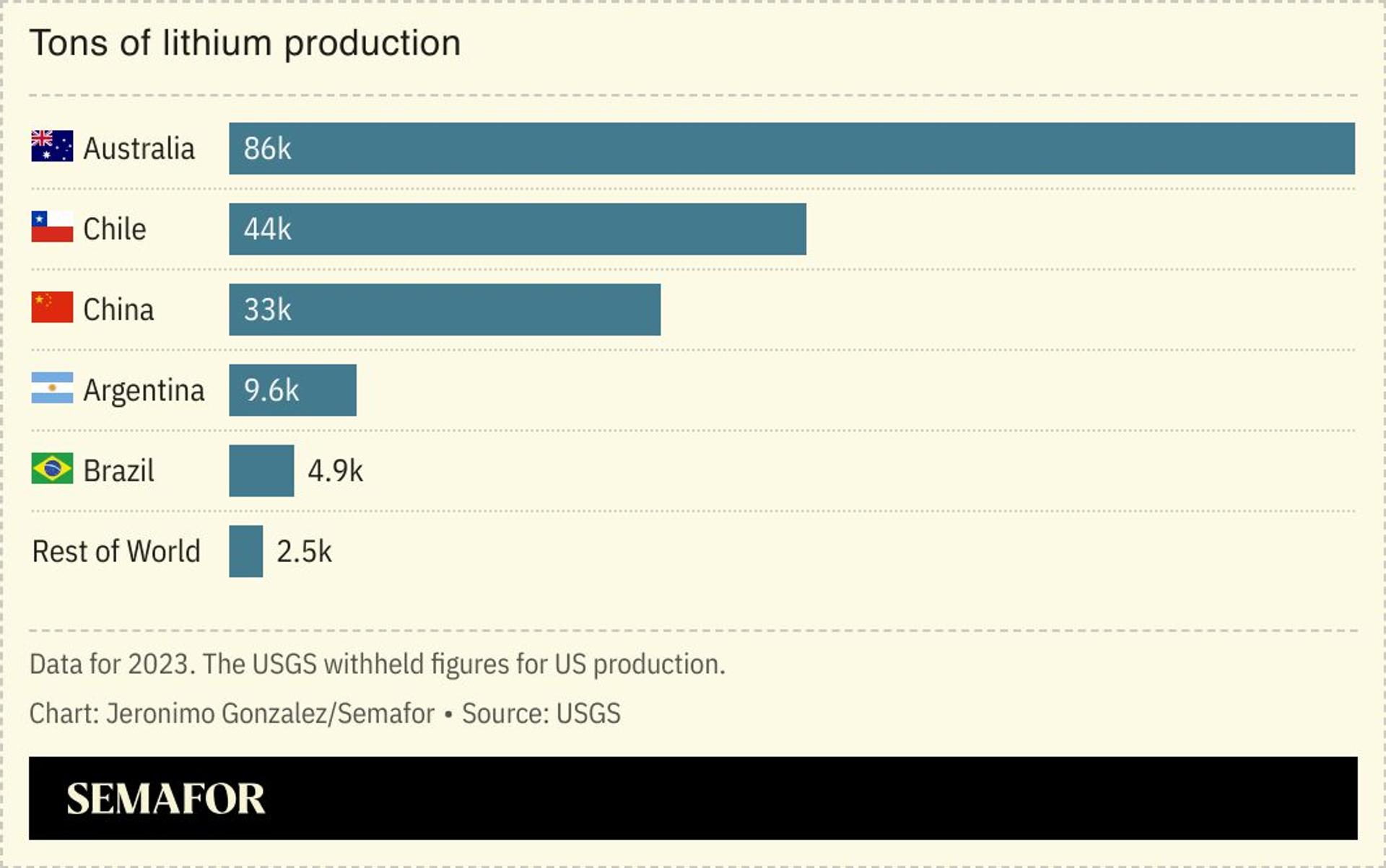The News
Lithium deposit discoveries in the US and China could reshape the global race for the mineral, which is vital to the green energy transition.
One cache, found along the borders of Nevada and Oregon, potentially holds as much as 40 million metric tons of lithium, while Chinese state media said reserves had been found that upped its share of global lithium supplies from 6% to 16.5%, although details were scant.
Lithium is crucial to Net Zero ambitions, especially battery manufacturing, but until recently, prospecting for the mineral has been limited compared to fossil fuel exploration.

SIGNALS
Lithium batteries are driving the global EV industry
The global electric vehicle industry — albeit in fits and starts — is growing, with the US and China, in particular, vying for dominance. Lithium batteries are driving the shift: “Whoever wins the battery war will win it all,” Chinese economist Ren Zeping said in 2022. Batteries account for about 40% of an EV’s cost, and global demand for batteries is projected to jump as much as tenfold by 2030, Dialogue Earth reported. China currently has the lead: The US has struggled to diversify its battery supply chain from China, as Beijing has control of some 60% of global lithium processing.
Lithium mining is not squeaky clean, prompting search for alternatives
Lithium mining requires vast quantities of water: Approximately 2.2 million liters of water is needed to produce a ton of lithium, Euronews reported, meaning it is highly resource-intensive to produce. Toxic chemicals released during the process can also contaminate local water supplies. In some countries at the forefront of the lithium boom, like Bolivia, reports emerged that suggested some lithium processing facilities may have mismanaged their water use, even as the government plans to expand the industry. With so few countries controlling lithium’s supply chain, some manufacturers are testing alternatives: Sodium-ion batteries could be a cheaper and more environmentally friendly alternative, for example, but these are still in the early stages of development.


